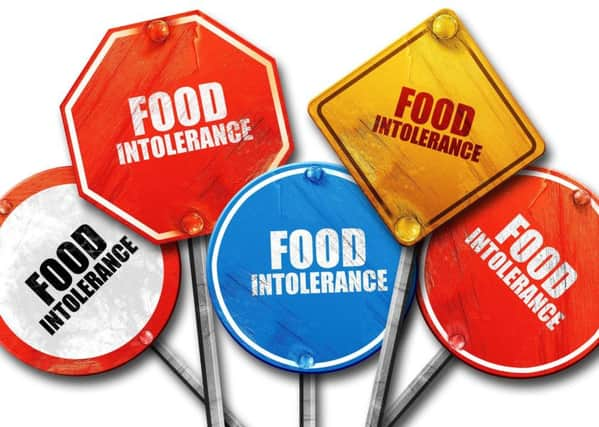Donna Peters column: Food intolerance is bad for your overall health


It’s really important to get to the bottom of this, especially if you’ve had it for any length of time because food intolerance causes low-grade inflammation in your body, which is bad news for your overall health. This happens because your immune system doesn’t like something you are repeatedly eating and triggers a response.
If you do have a food intolerance you don’t have to remove the food forever, providing it’s dealt with properly – it’s not enough to just take the food out and not do anything about it. Your gut needs some TLC to restore, rebalance and heal. Without this vital step, over time you’re likely to end up with more food intolerances and more symptoms.
Advertisement
Hide AdAdvertisement
Hide AdSo, could you have a food intolerance? Here is a list of some of the more common symptoms:
l Irritable Bowel Syndrome (IBS)
l Stomach pain/cramping
l Bloating
l Excessive gas
l Diarrhoea/constipation
l Fatigue
l Painful joints
l Weight that won’t shift
l Migraines/headaches
l Frequent coughs/runny nose/blocked nose
l Frequent ear infections
l Itchy or overly waxy ears
l Hives
l Asthma
l Eczema
l Sinusitis
It’s important to understand that food intolerance is different to a food allergy. However, both an intolerance and an allergy will provoke some kind of response from the immune system.
Food Allergy – A true food allergy produces IgE antibodies in response to a food, drink or other substance the body mistakenly thinks is attacking it. The issue can be restricted to one area (your digestive system, skin, etc) or the whole body, where the immune system triggers widespread inflammation and swelling (anaphylaxis), which can be deadly. The reaction is often immediate. If you think you have a food allergy, you can often get tested free of charge via your GP. If you have a food allergy, you will need to avoid the food forever.
Food Intolerance – It can be difficult to spot the cause of food intolerance because the reaction can be delayed. The symptoms may not occur for hours or, in some cases, days after eating. The intolerance causes the body to produce IgG antibodies, and raised levels to specific foods can cause low grade inflammation through the body, resulting in a range of symptoms which can vary greatly from one person to the next.
Advertisement
Hide AdAdvertisement
Hide AdIf you suspect you have food intolerance, testing is the first step so you can actually start putting it right. A fingerprint blood test can be done at home and sent to a specialist lab for analysis. A range of different options are available, starting at testing for 75 foods and going up to 200+. My advice would be to get the most comprehensive you can afford.
If you think you suffer from food intolerance and would like to discuss it further with me please get in touch via my website (donnapetersnutrition.com) or Facebook page (@donnapetersnutrition). All food intolerance tests booked through my clinic receive a free nutritional coaching session to help you understand the results and implement any changes.